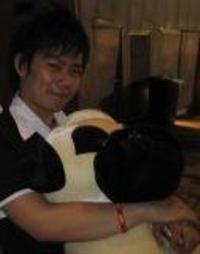This is a favourite story that I always try to reflect upon when I realise that I started to judge people from my point of view, which is often.
This passage is lifted from Stephen Covey's 7 Habits of Highly Effective People.
I remember a mini-paradigm shift I experienced one Sunday morning on a subway in New York. People were sitting quietly — some reading newspapers, some lost in thought, some resting with their eyes closed. It was a calm, peaceful scene.
Then suddenly, a man and his children entered the subway car. The children were so loud and rambunctious that instantly the whole climate changed.
The man sat down next to me and closed his eyes, apparently oblivious to the situation. The children were yelling back and forth, throwing things, even grabbing people’s papers. It was very disturbing. And yet, the man sitting next to me did nothing.
It was difficult not to feel irritated. I could not believe that he could be so insensitive as to let his children run wild like that and do nothing about it, taking no responsibility at all. It was easy to see that everyone else on the subway felt irritated, too. So finally, with what I felt was unusual patience and restraint, I turned to him and said, “Sir, your children are really disturbing a lot of people. I wonder if you couldn’t control them a little more?”
The man lifted his gaze as if to come to a consciousness of the situation for the first time and said softly, “Oh, you’re right. I guess I should do something about it. We just came from the hospital where their mother died about an hour ago. I don’t know what to think, and I guess they don’t know how to handle it either.”
Can you imagine what I felt at that moment? My paradigm shifted. Suddenly I saw things differently, and because I saw differently, I thought differently, I felt differently, I behaved differently. My irritation vanished. I didn’t have to worry about controlling my attitude or my behavior; my heart was filled with the man’s pain. Feelings of sympathy and compassion flowed freely. “Your wife just died? Oh, I’m so sorry! Can you tell me about it? What can I do to help?” Everything changed in an instant.
I really hoped that there're more people out there who really reflect on the meaning of paradigm shift or anjakan paradigma rather than just using them verbatim in Form 5 to make their BM essay sounds more sofisikated. Try see the direction from where the others are coming, rather then impose what you think upon their action or opinions.














2 comments:
It's sofisTikated, not sofisikated. :P
That's quite an enlightening story there. Thanks for sharing.
oops...my bad..havent been brushing up my Malay for a few years. Better get started.. =)
Post a Comment